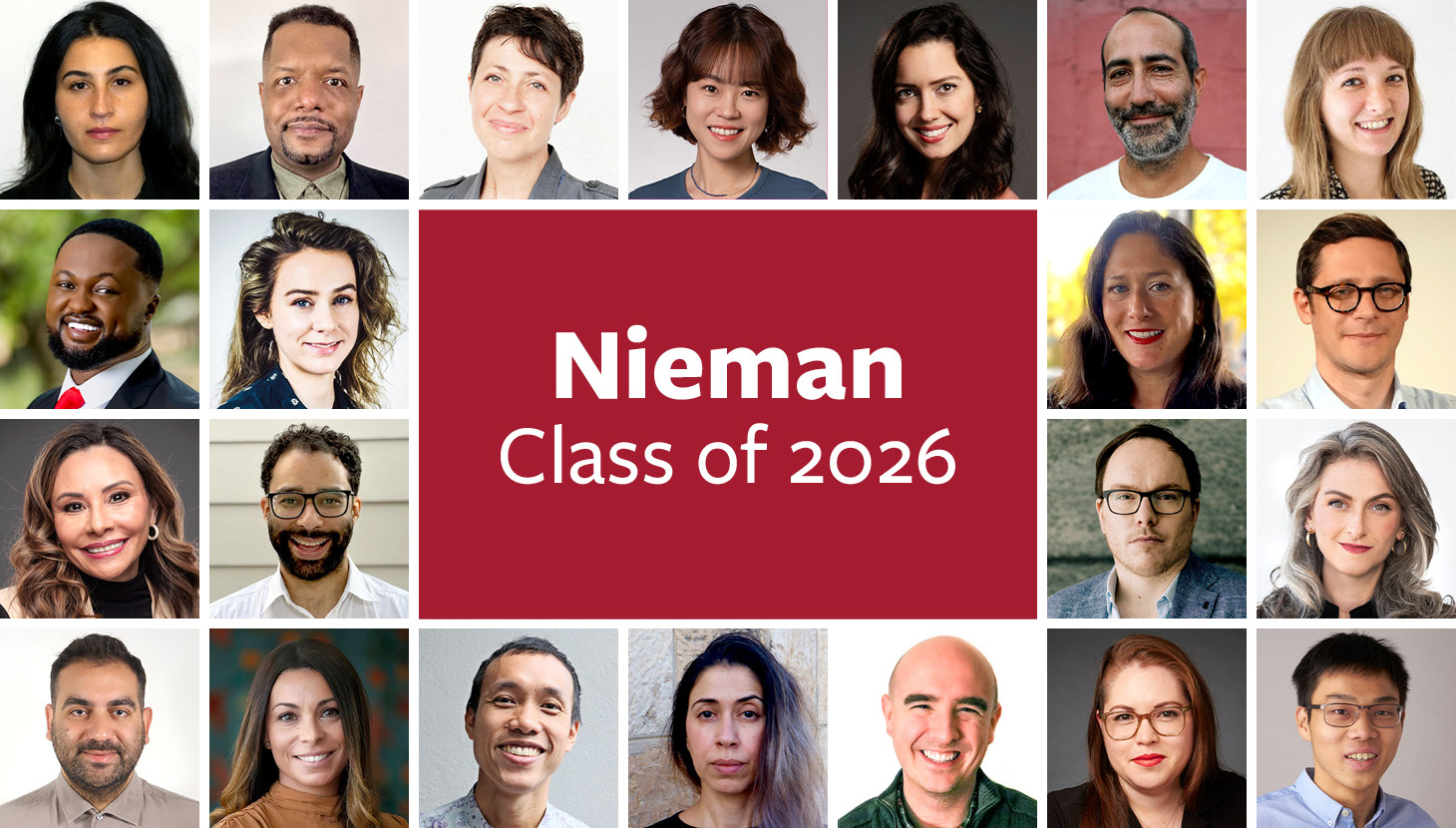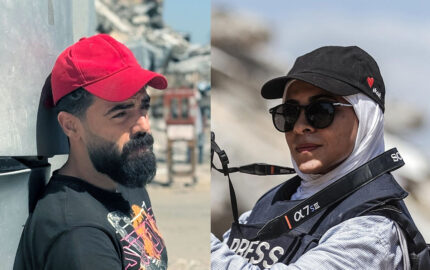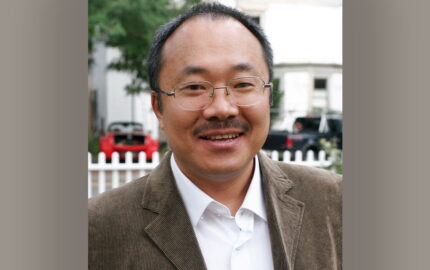The Nieman Foundation for Journalism has selected 22 accomplished journalists from around the world as members of the class of 2026.
The new cohort, representing nine countries, includes reporters, editors, producers, podcasters, multimedia journalists, a news anchor, columnist, audience development manager and data editor. The fellows work for legacy newsrooms, digital outlets, national television and radio stations, investigative collaboratives and as independent journalists.
Announcing the class, Nieman Curator Ann Marie Lipinski said: “Nieman is proud to support these talented journalists, especially at a time when there is a growing need for fortifying the free press. These fellowships are an investment in their future and evidence of our commitment to strengthening journalism leadership in the U.S. and abroad for nearly nine decades.”
During two semesters of study at Harvard University beginning this fall, the new fellows will delve into topics including climate change, war crimes, cryptocurrency, misinformation, immigration and AI applications for newsrooms.
The Nieman Foundation has selected more than 1,700 journalists from 100 countries for fellowships at Harvard since its founding in 1938. Fellows audit classes across the university, collaborate with scholars and students at Harvard and MIT and participate in Nieman seminars and workshops.
The 2026 Nieman Fellows and their study plans:
Yousur Al-Hlou, a visual journalist most recently with The New York Times, will study how international humanitarian law has failed to prevent armed conflict, and the challenges for accountability mechanisms in prosecuting war crimes despite visual evidence.
Cindy Carcamo, a writer most recently with the Los Angeles Times, will study how two centuries of immigration have shaped the American palate and the U.S. food industry.
Irene Caselli, an Italian journalist who leads the Early Childhood Journalism Initiative at the Dart Center for Journalism and Trauma and created The First 1,000 Days newsletter, will examine media coverage of young children.
Ridwan Karim Dini-Osman, a Ghanaian journalist who works as a news anchor for the EIB Network in Accra and with the U.S. radio program “The World,” will study how African newsrooms can improve coverage of marginalized groups despite legal and cultural barriers.
Daniel Drepper, head of investigative cooperation between the Süddeutsche Zeitung and the German public broadcasters NDR and WDR, will explore how journalism collaborations can address the climate crisis.
Kaila Dwinell, audience development manager for the NBC News Group in New York, will research alternative news distribution models and ways they can enhance trust in journalism.
James Edwards, a New York-based journalist and podcaster who has worked for HBO, Wondery, PBS and other outlets, will study documentary theater and how the stage can be a medium for investigative journalism and storytelling.
Silvia Foster-Frau, a national investigative reporter for The Washington Post, will study global and historic immigration and what can be done to improve coverage of immigrant communities.
Marcela García, an opinion columnist and associate editor at The Boston Globe, will study the population of undocumented women through an interdisciplinary lens that includes the law and economics.
Jessica Glenza, a senior health reporter for The Guardian US in New York, will study the intersection of law, medicine and politics in her examination of healthcare financing in the U.S.
Lisa Hagen, a national reporter for NPR based in Atlanta, will study the history of Christianity and its intersection with politics to better understand current-day populist movements.
Suha Halifa, senior editor of The Times of Israel Arabic in Jerusalem, will study the effect of Arabic and Hebrew terminology in news reporting on public opinion, researching how newsroom composition affects language trends and news coverage.
John Hammontree, executive producer of podcasting for the Alabama Media Group, will study the rise of sports media and influencers and their effect on young men and the spread of misinformation.
Simone Iglesias, an economy and government reporter for Bloomberg News in Brasília, will study the rise of China’s influence in Brazil and South America and its impact on U.S. standing in the region.
Yao Hua Law, co-founder of Macaranga Media, Malaysia’s only environmental news outlet, will study new financial models and community participation for reporting on the environment.
Shany Littman, a magazine writer for Israel’s Haaretz newspaper, will investigate the creation and spread of fake atrocity stories during wartime, focusing on their origins and impact.
Andrea Marinelli, deputy foreign editor at Italy’s Corriere della Sera newspaper, will explore how coverage of the U.S. and its foreign policy is changing alongside the shifts in American politics and society.
Shaun Raviv, an independent journalist based in Atlanta, will study the growing field of AI safety and whether advanced artificial intelligence can be safe for humanity.
Sotiris Sideris, data editor at the Center for Collaborative Investigative Journalism in the U.S. and Reporters United in Greece, will explore the use of generative AI to enhance accountability reporting and reinforce audience trust.
Daniel Strauss, most recently a national political reporter for CNN based in Washington, D.C., will study how the rising use of cryptocurrency will affect federal campaigns, elections and policymaking.
Ling Wei, a freelance editor with Phoenix News in China, will study the intersection of xenophobia and the internet and how journalists can use storytelling to broaden perspectives and reduce division.
Wufei Yu, a Hong Kong-based journalist, will study the role of local and Indigenous communities in conservation and climate change policy, with a focus on China and the Chinese diaspora.
The 2026 Nieman Fellows were selected by Nieman Foundation Curator Ann Marie Lipinski and Deputy Curator Henry Chu.
The Nieman Foundation for Journalism at Harvard educates leaders in journalism, promotes innovation and elevates the standards of the profession. In addition to its fellowship program, the foundation publishes Nieman Reports, a website and print magazine covering thought leadership in journalism; Nieman Journalism Lab, a website reporting on the future of news, innovation and best practices in the digital media age; and Nieman Storyboard, a website showcasing exceptional narrative journalism and nonfiction storytelling.



